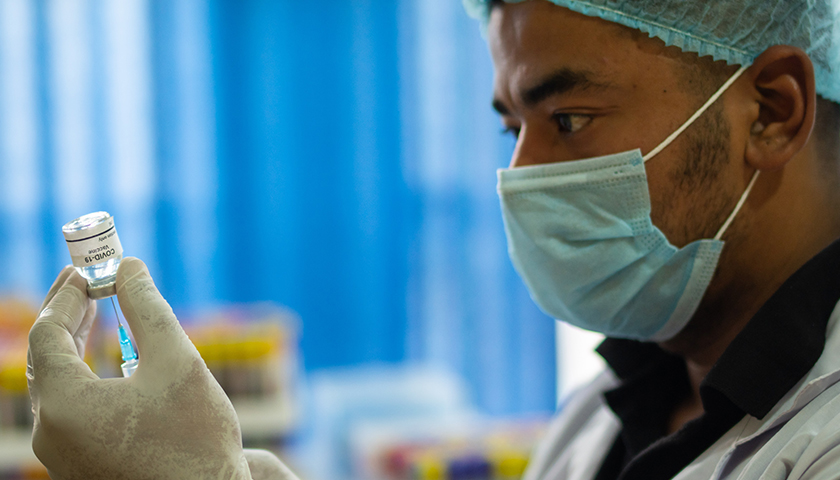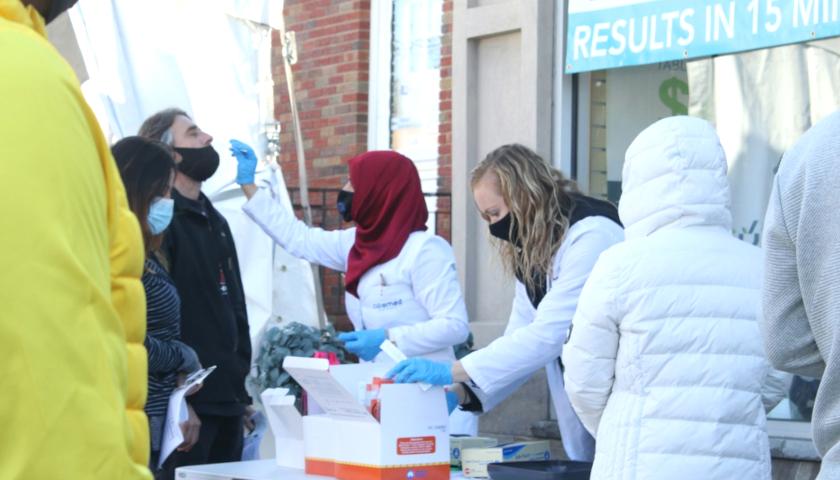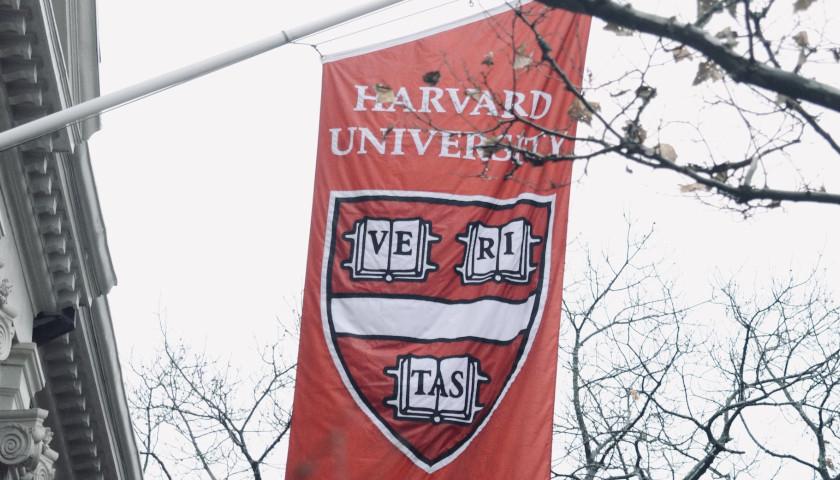by Andrew Spiegel
President Joe Biden craves a cure for cancer. In a speech to Congress this spring, he vowed to “end cancer as we know it.” And as vice president, he helped start the Cancer Moonshot initiative.
Yet by giving his backing to a global waiver of intellectual property (IP) rights for COVID-19 vaccines, President Biden may have endangered millions of Americans living with cancer.
The Biden administration has said that it would join a World Trade Organization move to suspend IP safeguards for the vaccines. Its intentions are no doubt sincere, founded in the belief that a waiver will help rid the world of COVID-19. Yet the setting aside of IP protections has consequences that the administration seems to have overlooked.
If adopted, the waiver won’t galvanize the supply of vaccines bound for the developing world – certainly not in the immediate term. What it will do is threaten scientific innovation that could lead to cures for cancer and other diseases.
I’ll explain why. Technically, the waiver supported by the United States would only apply to IP on COVID-19 vaccines. So what has this got to do with cancer?
There are two consequences. First, intellectual property underpins scientists’ incentives to make discoveries. Without proprietary “armor” to protect research, rivals could blithely – and lawfully – use scientists’ know-how, data, or manufacturing processes.
Second, waiving IP on underlying vaccine technology has ramifications for drug innovation. Since the same technologies are used for potential treatments for other diseases, vaccine-makers would have to give up IP on those projects too.
Consider the Pfizer-BioNTech and Moderna vaccines. They use “mRNA” to promote an immune response to COVID-19, a technology that took decades to develop. With the successful rollout of mRNA COVID-19 vaccines, researchers in the United States and Germany now hope they can use mRNA to fight other viruses. Moderna has active trials for mRNA vaccines for Zika, HIV, and the flu.
Cancer doctors and patients pray that mRNA is the key to a cure. Moderna, in fact, has two mRNA vaccine candidates for cancer. Researchers hope that mRNA could instruct the body to combat cancerous tumors like it fights a virus.
With the IP waiver, Moderna’s mRNA technology could end up with rivals, leaving the company with greatly diminished incentives – and greatly diminished investment dollars – to continue with mRNA clinical trials, including ones for cancer. Advanced drug innovation could come to a halt. What investor would fund biotech startups if copycats can swoop in?
This scenario is made especially distressing by the fact that the upsides of the IP waiver are negligible. Manufacturers need specialized facilities and hundreds of ingredients to make vaccines. Vaccine-makers have struck licensing deals to scale up production. Every facility on earth that can safely produce effective vaccines is already doing so. Getting rid of IP won’t make the scale-up go any faster. It could, however, unleash millions of shoddy copycats and event counterfeit vaccine doses.
President Biden has shown how he can help vaccinate the world without holding mRNA research hostage. For instance, he has already agreed to donate 580 million of the United States’ surplus vaccine doses to COVAX – a WHO, CEPI, and Gavi co-led initiative to distribute COVID-19 vaccines to developing countries.
With President Biden, the cancer community has an ally in the White House. And yet, with the IP waiver, he’s undermining the only industry that may find a cure for cancer.
– – –
Andrew Spiegel, Esquire is the executive director of the Global Colon Cancer Association. He is a contributor to The Center Square.








